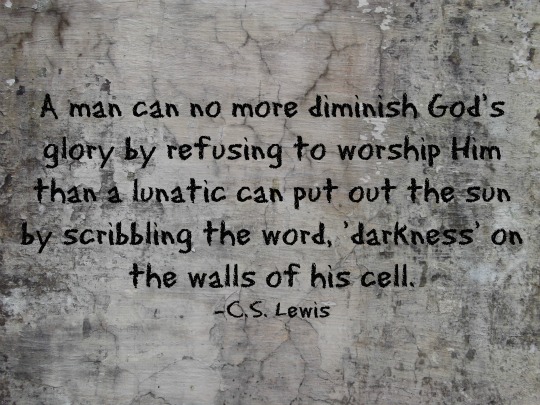In society today there is an indelible line between the spiritual and the scientific, but this was not always so. Though many scientists today may say that in the past, it was only ignorance that bound science and religion together, there are some people involved in both who see no conflicting teachings. Critics of religion often argue that since there is no physical evidence for God, then He must not exist. This argument is flawed because it is assuming that the only evidence for a Supreme Being must be measurable and quantifiable through our five senses. Those who have had meaningful spiritual experiences, though, know with a certainty that modern science scoffs at that there is a God. How can they know? Through another sense just as valid as the five we usually discuss, but one which is personal and spiritual.
 Spiritual experiences touch a person’s heart and soul in a very real, very personal way. It is hard to find words to describe these experiences because they are, quite literally, not of this world. This does not mean that any spiritual experience involves visions of angels or divine manifestations; it simply means that the wisdom of men falls far below the wisdom of God. He does not express Himself in the same way we do to each other.
Spiritual experiences touch a person’s heart and soul in a very real, very personal way. It is hard to find words to describe these experiences because they are, quite literally, not of this world. This does not mean that any spiritual experience involves visions of angels or divine manifestations; it simply means that the wisdom of men falls far below the wisdom of God. He does not express Himself in the same way we do to each other.
President Boyd K. Packer of the Quorum of the Twelve Apostles of The Church of Jesus Christ of Latter-day Saints (which church is frequently misnamed the “Mormon Church”) made a compelling analogy. When confronted by an obstinate atheist who demanded that President Packer could not in fact know that God existed because he could not describe how he knew, President Packer responded by asking if the man had tasted salt. When the man answered in the affirmative, President Packer asked the man to explain to him what it tasted like. Words failed the atheist. President Packer calmly explained that in the same way the man knew what salt tasted like, but could not describe it to someone else, so President Packer himself knew there was a God, but could not put into the words of men how he knew. That had no effect, however, on the certainty he had that God did, in fact, exist (“The Quest for Spiritual Knowledge,” New Era, January 2007).
All persons who have had religious experiences are affected by this loss of words to describe their convictions. Thomas Aquinas, after trying for hundreds of pages to put down the specifics and intricacies of Catholic belief told his friend that a divine experience he had had affected him so much that he could not write or dictate any more. “I have seen things that make my writings like straw,” he said.
When it comes down to it, those who argue there is no evidence for the existence of a God have equally little evidence that there is no God. When a Book of Mormon prophet, Alma, was confronted with an argumentative atheist, he said:
And now what evidence have ye that there is no God, or that Christ cometh not? I say unto you that ye have none, save it be your word only. . .
But, behold, I have all things as a testimony that these things are true; and ye also have all things as a testimony unto you that they are true; and will ye deny them? . . .
Thou hast had signs enough; will ye tempt your God? Will ye say, Show unto me a sign, when ye have the testimony of all these thy brethren, and also all the holy prophets? The scriptures are laid before thee, yea, and all things denote there is a God; yea, even the earth, and all things that are upon the face of it, yea, and its motion, yea, and also all the planets which move in their regular form do witness that there is a Supreme Creator (Alma 30:40–44).
Latter-day Saints (“Mormons”) and other Christians believe that these things are made manifest to our hearts by what they call the Spirit, the Holy Spirit, or the Holy Ghost. This member of the Godhead acts as a personal witness to us, giving us undeniable confirmation of the reality of Jesus Christ and of the doctrines and principles of His gospel. This witness is the only way to gain this knowledge. It cannot be proven by logic or study, these things can help to strengthen that witness once it is received.
Another Book of Mormon prophet, Moroni, gave us the formula necessary to gain this witness:
And when ye shall receive these things, I would exhort you that ye would ask God, the Eternal Father, in the name of Christ, if these things are not true; and if ye shall ask with a sincere heart, with real intent, having faith in Christ, he will manifest the truth of it unto you, by the power of the Holy Ghost.
And by the power of the Holy Ghost ye may know the truth of all things (Moroni 10:4–5).
Those who do not have a spiritual conviction can look at spiritual beliefs of others and offer valuable insights to those who practice religion, but they can never capture the inexpressible convictions of those who have gained undeniable witnesses through the Holy Ghost.
The Church of Jesus Christ of Latter-day Saints invites all people to gain their own personal witness of the divinity and reality of Jesus Christ. He is the Son of God. He lives. His death and resurrection make it possible for us to return to the presence of God, if we keep His commandments and repent of our sins. The love that God and His Son have for you is real. They want you to be happy and successful in the things which matter most. This is the message of the restored gospel of Jesus Christ.
This article was written by Doris White, a member of The Church of Jesus Christ of Latter-day Saints.




